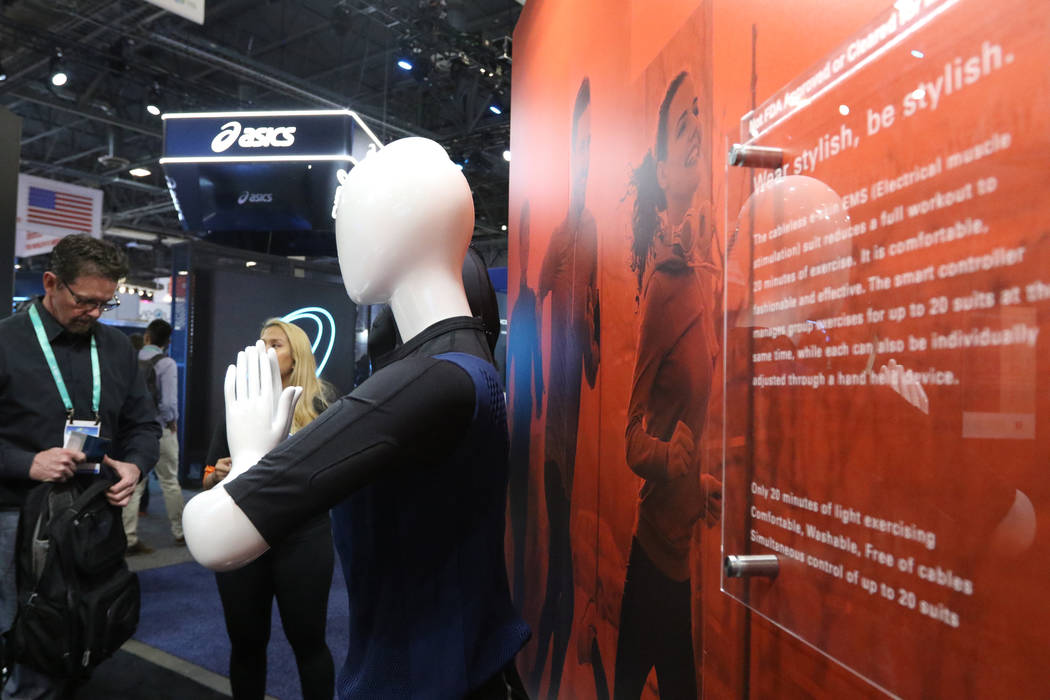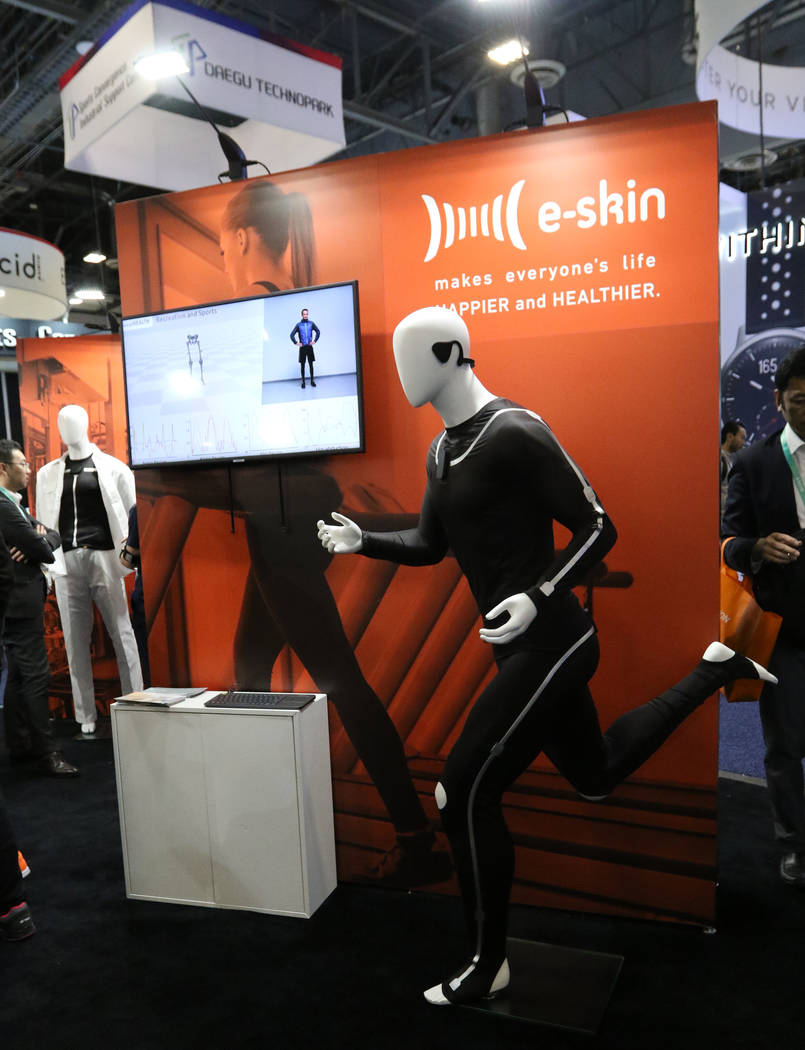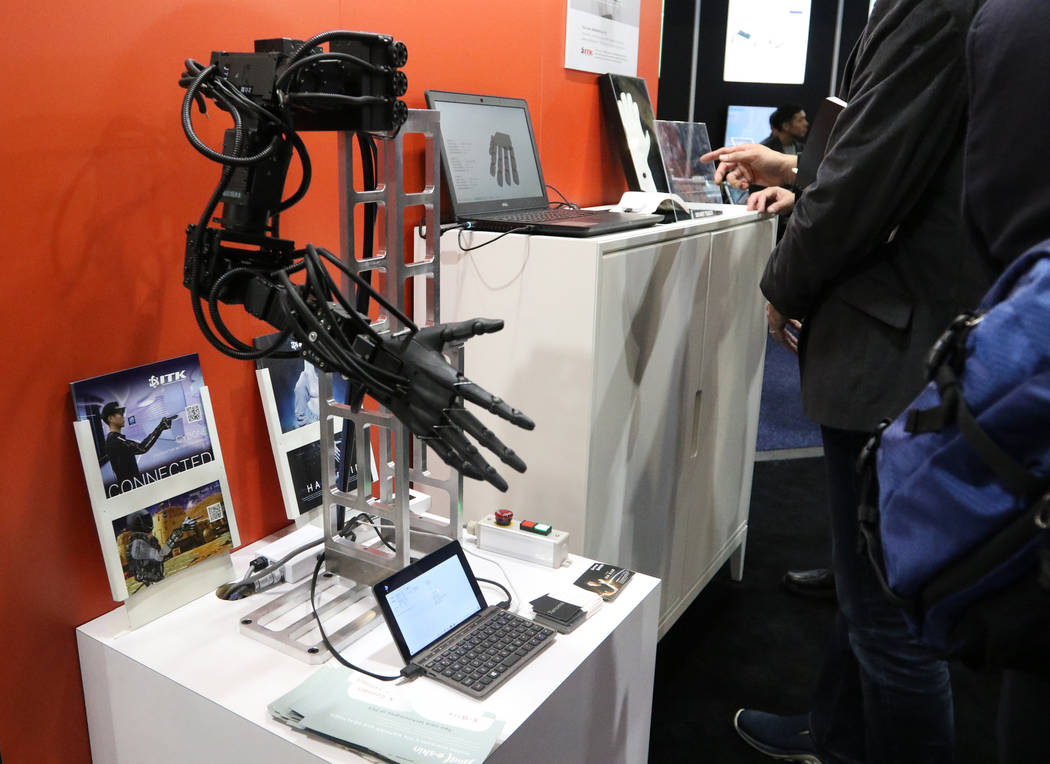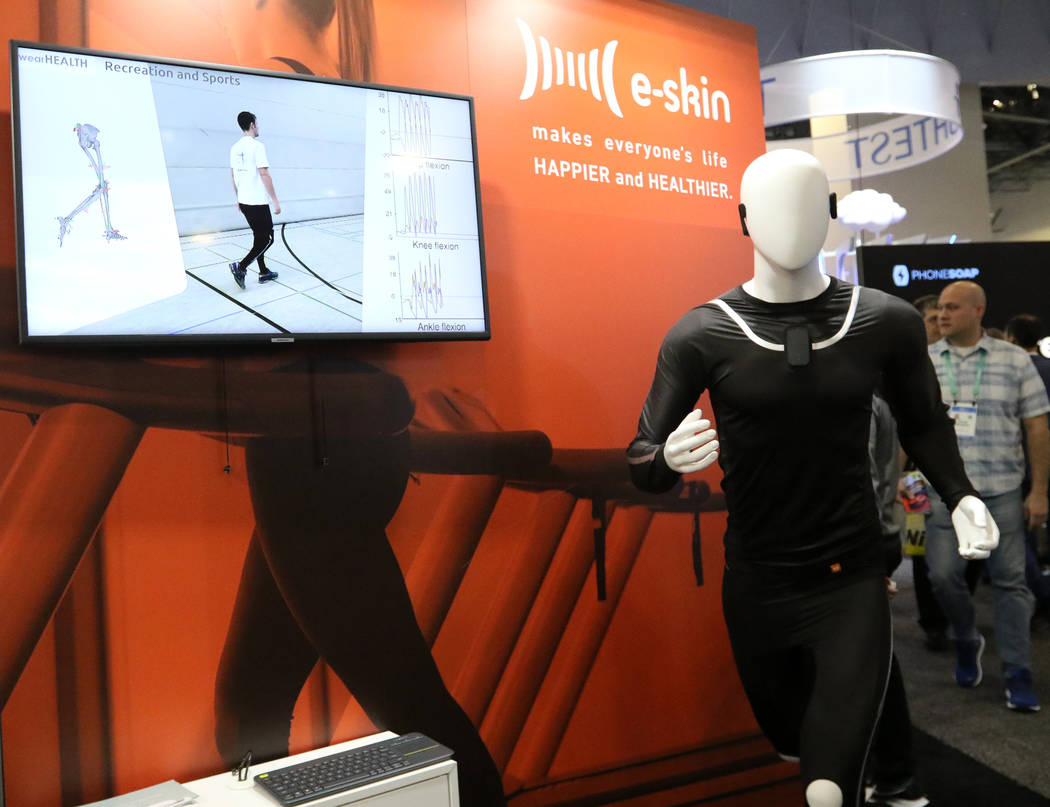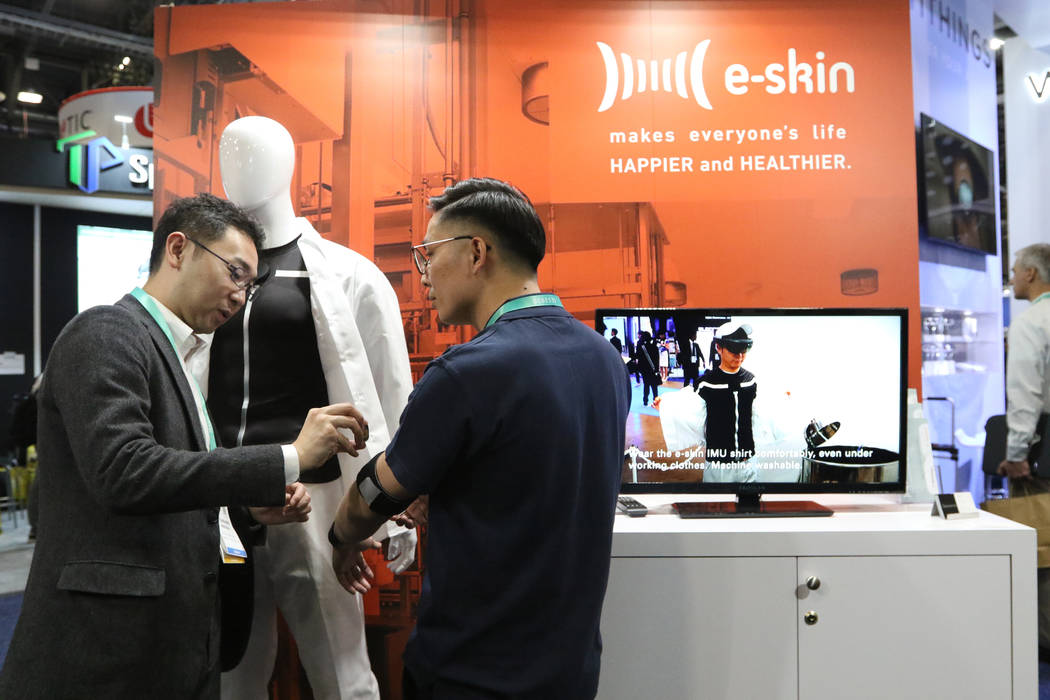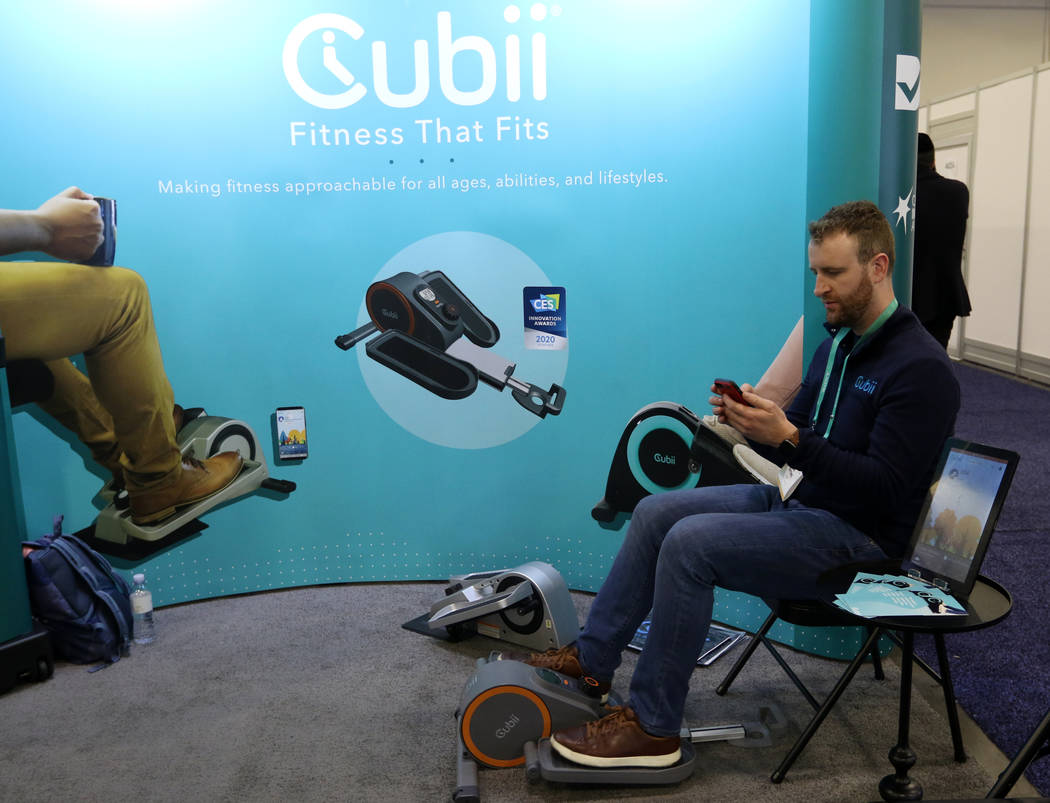Latest fitness technology unveiled at CES 2020 in Las Vegas
Fitness isn’t just fitness anymore.
It’s content, too, according to Arnav Dalmia, whose company, Cubii, is based in Chicago and was honored at CES 2020 with an innovation award.
“Past is the world where you could just have a fitness product and not have any technology, because it gets boring very quickly,” Dalmia said. “In today’s age, technology and fitness go hand in hand for us. … The goal is not just to sell a product. It’s to make sure (the customer) keeps using the product. And that’s where the technology is coming in.”
Fitness technology continues to evolve, providing more comfortable, accurate and efficient solutions for users who are seeking to reach short- and long-term health goals.
And as a result, fitness exhibitors are showcasing increasingly personal and interactive products at CES.
General fitness
Cubii’s award-winning elliptical is mobile and compact, made for use at home while sitting on the couch. And small enough to store under a desk. Its design eases the impact on joints and can improve a user’s cardiovascular endurance and flexibility.
It’s optimized for seated use and is relatively quiet, allowing for convenient workouts at a moment’s notice. The Cubii Jr. features a built-in display model and starts at $249. The Cubii Pro is compatible with Bluetooth and can pair with a fitness tracking application, and sells for $349.
Positive Posture, based in Boulder, Colorado, unveiled its latest massage chair, the Brio Sport — designed for athletic and muscle recovery. The chair, retailing for $7,999, scans the user’s body and customizes a massage based on height, weight and distressed areas.
Designed also for stress relief, the Brio Sport includes a deep tissue massage option, compression therapy and heated rollers that CES 2020 attendees could try on site.
Echelon of Chattanooga, Tennessee, is showcasing its smart rowing machine, complete with 32 levels of resistance, on-demand classes with veteran instructors and adjustable foot platforms for users of all sizes. Machines without built-in screens cost $999, and machines with built-in screens cost $1,599.
Cerritos, California, company InBody was back with its latest body composition analyzer, offering detailed analysis of fat, muscle and water weight from various parts of the body. It’s commonplace at hospitals and gyms. The standard 570 model retails for $9,995, while the more sophisticated 770 model goes for $18,995.
Wearables
The Japanese electronics company Xenoma is showcasing another wearable e-skin this week, complete with electric muscle stimulation technology designed to replicate an hourlong workout.
In about 20 minutes.
The cable-free e-skin EMStyle suit features positions electrodes around the user’s body that stimulate the muscles during physical activities such as walking, jogging, yoga and Pilates. Up to 20 suits can be synchronized for group fitness. It’s expected to start at $30,000.
The Finnish company Firstbeat introduced new and improved algorithms that track various fitness metrics, including heat and altitude acclimatization, training load balance and respiration rate. Firstbeat licenses its algorithms to various wearable manufacturers such as Garmin, which develops smart watches that track the metrics in real time.
Other key metrics include recovery time advisory, race time predictor and calories burned.
Watches with Firstbeat metrics start at $150.
Digitsole, a French footwear company, released a new version of PODOsmart, a stylish shoe that can track and analyze a user’s gait in fewer than 30 seconds. Mobility disorders can include limping or abnormal changes in pronosupination angles, and data can be shared with local physicans.
The company also offers heated insoles and insoles engineered specifically for competitive cyclists. PODOsmart shoes cost $2,000.
Contact reporter Sam Gordon at sgordon@reviewjournal.com. Follow @BySamGordon on Twitter. A Twitter List by reviewjournal



